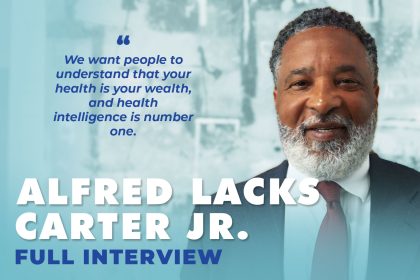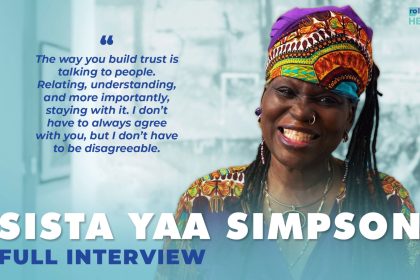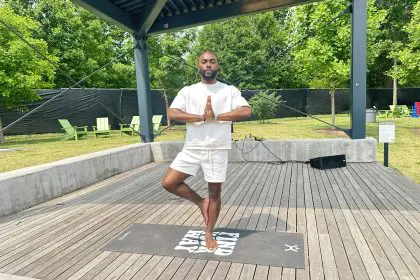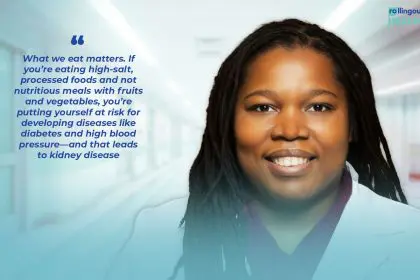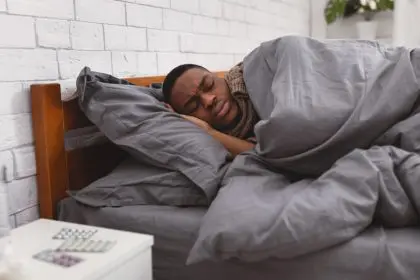Pamela Rucker Springs wants your children to have a safe summer. The director of communications for the U.S. Consumer Product Safety Commission has a duty of protecting American consumers on product hazards and reaching at-risk audiences with crucial messages.
This summer, Springs has been involved with the federal agency’s “Pool Safely” campaign, which she discussed more in-depth with rolling out.
What is one important message you would like to share about pool safety in our community?
I’m the head of communications for the Consumer Product Safety Commission. It’s the small federal agency that’s responsible for keeping products safe and helping people use products more safely.
I’ve been here for about a year and a half, and some of the facts I’ve learned particularly around simple things like swimming really gave me pause. I’m thrilled to be here to help people understand that drowning is preventable. For the Black community, in particular, drowning is a real problem. We drown at much higher percentages than other communities with our representation in the population. I’m very keen to get the word out about drowning prevention.
Can you share three myths about pool safety?
The first biggest one is that when people are drowning, there’s a lot of splashing and a lot of noise, which would alert someone to when somebody’s drowning, and that’s actually far from the case. Drowning is silent, and it’s quick. A child can drown in as little as two inches of water. When a child goes underwater, you can’t hear it. The time it takes you to read a text, a child could be drowning. Anybody could be drowning.
The second myth is people think drowning is inevitable, but it’s not, it’s totally preventable.
The third one is someone can jump in the water, and automatically, your natural swimming skills will come through. That’s just not the case. Swimming is a skill that you need to learn in order to prepare yourself to be safe in the summer.
If you could have a conversation with parents, what should they be saying to their children and to themselves, as it relates to water safety right now?
Parents really ought to underscore the fact that water is dangerous. It looks fun. You splash around in it, but water can be dangerous. Kids really need to learn how to swim. Parents need to underscore with their kids at the beginning of the summer, “It’s time to go down to the Y.M.C.A., or to the local rec center and get you some swimming lessons.”
The second thing that folks ought to understand is, you can’t really tell the depth of water. When you’re at a pool, you look in a pool and (say), “I could see the bottom, so it can’t be dangerous.” The parents need to underscore and highlight to their kids that it looks innocent, but it’s not. They need to learn things like CPR. They need to be aware of where they are. They need to be aware of their friends, and for God’s sake, don’t swim alone. That’s the worst thing a child can do. They’re having fun, they’re out with their friends, and the friends go off somewhere, but they want to stay in the water. That’s not a good thing. So, don’t swim alone. For God’s sake, learn how to swim and ensure that there’s somebody with you at all times.
How does pool safety and alcohol, or any other substance, affect a community?
Alcohol, and any substance that impairs your judgment, or that changes your perception, is just not good. Especially when you are involved in things like swimming. It impairs your judgment, you think, “Oh, the water is not so deep. Sure, I can manage that.”
When you have an inflated sense of how you’re able to handle a situation, you could panic. Just like drinking and driving don’t mix, drinking and swimming don’t mix.
What should swimming pool owners be aware of?
Swimming pool owners ought to, at a minimum have a lifeguard, at least one. I’m sure there are organizations that can tell you how many lifeguards you need to have for the expected amount of people, but have lifeguards. Have layers of protection, the lifeguard is just one layer, fences around pools [is another layer]. Owners should always ensure that the pool drains that they have are compliant with our standards. [Also, make sure the pool drains] aren’t the kinds of drains that will suck kids in or impair a kid’s ability to swim or to move around in the water.
Of course, adults are always important in this equation. We say there should be a designated water watcher. The lifeguard is one, but if adults are there, somebody needs to be watching our babies, as well.
You can never have too many eyes on babies.
How important is CPR as it relates to pool safety and family safety?
When accidents happen, if a kid, or anyone gets into trouble in the water, sometimes that adult or that teenager is the first person to get there. In these circumstances, timing is critical. You don’t want to wait for the EMTs to get there. If you know CPR, you could be the difference between life and death for somebody who’s suffering from drowning.
Are CPR classes free?
CPR is available in hospitals, it’s available at rec centers, places like the Y.M.C.A. offer CPR, other organizations, and community organizations, will offer CPR, and the local Urban League here in DC office offers CPR. CPR Lessons are available. Everybody knows how to Google. So, if you Google “CPR in my area,” you’ll find someplace that could give you some lessons.
Culturally, how can we approach pool safety differently?
Swimming, in general, is one of those things I’d like to say, that the historical discrimination and trauma are still with us today. When slaves were being snatched from the shores of African countries, the warning was, “Stay away from the water so you won’t get caught.”Coming full circle to the 60s, you had discrimination, you had segregation and inadequate pool equipment, so we didn’t learn how to swim. Well, I didn’t learn how to swim until I was in my teens. My mother didn’t know how to swim, I didn’t think anything of it. So, it’s one of those cultural things we really need to overcome and really double down on it. This is something we need if we want to enjoy our summer fully.
Who else can play a role in doing outreach to our community about pool safety?
There are organizations like Diversity In Aquatics, the U.S.A. Swimming Foundation, the Shawn Delifus Foundation. There are lots of organizations that really target our community with the importance of swimming, with developing, swimming skills. There’s a Black Swimming Association, I was just in L.A. recently, and there’s a Black Surfing Association.
So, the good news is that there are lots of organizations. There’s lots of support. Again, Google it. You probably want to find something in your neighborhood, or in your area. There are lots of organizations and lots of resources. The usual suspects, American Red Cross, the Y.M.C.A., there are lots of resources to help us. Learn how to swim, learn CPR, and learn those life-saving skills that will serve you as well for many years to come.
I’m thinking the pastor, the charities, and fraternities might need to become messengers at this moment.
Yes, I believe that there are some sororities. Sigma Gamma Rho, I believe, has a program that’s really dedicated to helping young people swim. I’m unaffiliated, but every association and sorority should have something like that to help young people with this skill.
If you had to give a speech on swim safety, what would be that speech?
I would really highlight for folks that it’s time to turn the page on trauma that may have affected our parents and grandparents. We have the skills, the resources available to us today, so we no longer have to pass down a vestige of trauma and racism and discrimination, and we can live out our full and complete lives. In the summertime, we can go to the pool. We can go to the lake. We can go to a spa and fully enjoy ourselves, and we can prepare ourselves and prepare our children to enjoy life more fully and safely by just learning how to swim, learning CPR and those skills.
How important is it to obey the signs that say things similar to, “Don’t swim in this water?”
Signs are there for a reason. There are too many instances every year where people, kids, and youngsters look at a sign and think, “Oh, it doesn’t look that bad.” Then, next thing you know, you’ve got three, four grieving parents. So, pay attention to the signs. They’re there for a reason.
If you have any questions, ask your mom, ask your dad, “Hey. This sign says this. Do you think it’s really serious?” And I feel certain that you’ll get a slap upside the head.
Pay attention to that sign. Don’t go near that water. It’s there for a reason, it’s there to keep you safe. If you don’t read it, then it’s not that it’s not doing its job, and that you’re not doing your job.
For more information on how to “pool safely”, please visit: poolsafely.gov

